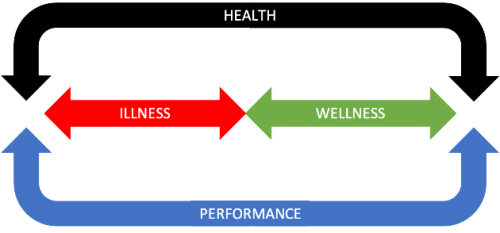AASP Statement on the Continuum of Mental Health & Relationship to Performance: A Response to the Conversation Supporting Naomi Osaka and Simone Biles
August 17, 2021
Performers at the highest levels have experienced incredible challenges to mental and physical health. Recent examples of Naomi Osaka and Simone Biles – professional female athletes of color – are revolutionizing sport by publicly prioritizing their mental health needs and self-care over earning athletic accolades and entertaining spectators on the world stage. They, and other athletes, are disrupting the harmful sport ethos that normalizes winning at all costs and accepting all risks that come with competing. In June 2021, professional tennis player Naomi Osaka withdrew from the French Open and recently gymnast Simone Biles withdrew from her team and all-around finals of the Olympics. While both athletes continue to receive criticism for withdrawing from competition for their well-being, the Association for Applied Sport Psychology (AASP) applauds and honors Osaka and Biles for having the strength and courage to champion mental health as a priority and by doing so, are paving the way for future generations of athletes.
AASP recognizes and promotes the role of both mental performance and mental health in athletes’ quest to function and achieve performance excellence. AASP members are trained across the mental health continuum, with some holding clinical licensure, others specializing in performance excellence and others dually trained. Thus, AASP is well-positioned to support athletes and their support team, as well as performers in other domains. AASP professionals provide services to develop the requisite mental performance skills and mental health literacy to achieve success and overall health. In today’s challenging climate and pandemic-induced reality, it is essential to understand these concepts and how mental performance service and mental health providers can contribute to these important conversations and address the solutions and support that can be offered.
Mental health is a part of, not separate from, athlete health (NCAA, 2021). Mental health exists on a continuum, with thriving on one end of the spectrum, known as mental wellness, and on the other end of the spectrum, significant disorder in a person’s functioning and performance over time, known as mental illness (see model below). In the area of sport and performance, Certified Mental Performance Consultants® (CMPC®) are trained and credentialed to work with athletes and performers to address optimizing their mental performance with strategies to help them thrive in their sport. Some CMPCs® are also clinically trained and can diagnose and treat mental illness.
The relationship between health and performance is depicted in the illness to wellness continuum model below. The model shows that both health and performance impact one another and are also influenced by mental wellness and illness. It is important to note that an individual’s performance may or may not be correlated to their mental wellness or illness. For example, an athlete or performer could be struggling in life but doing well in their performance. In this case, they may need a mental health provider. On the other hand, a person could be doing well in their personal life but struggling with their performance, in which case they might be better served by a CMPC®.

In order to improve the mental health of all athletes, systemic change must occur. Stakeholders including national and regional organizations, policymakers, managers, coaches, parents and athletes themselves must be part of the solution. AASP is committed to prioritizing the entire continuum of mental health in its initiatives to optimize performance and well-being on and off the ‘field,’ and this is inclusive of both mental wellness and mental illness. AASP also supports cutting-edge research aiming to uncover the links between mental performance, mental wellness and mental illness, and ways that these constructs facilitate or hinder overall performance and health.




